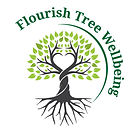
What is the Open Arms Outreach Counselling Program?
Open Arms outreach program is a Commonwealth-funded counselling and mental health wellbeing service supporting Australia's veteran community. Through this service, you and your family can access professional support from qualified psychologists and mental health social workers who understand the unique challenges of military life.
The service ensures veterans, and their families receive professional care through approved outreach counselling providers, making mental health support accessible and tailored to your needs.
Who Can Benefit from Open Arms Outreach Counselling?
Our outreach counselling services are specifically tailored for anyone who has served at least one day of continuous full-time service in the Australian Defence Force (ADF), and their immediate families can access comprehensive mental health support through Flourish Tree Wellbeing. Please visit Eligibility | Open Arms for the full eligibility criteria.
Why Choose Us?
At Flourish Tree Wellbeing, our approach combines professional expertise with genuine empathy, compassion, creating a safe space where healing meets growth. With over five years of diverse experience across addictions, and mental health, I bring evidence-based therapeutic approaches, including CBT, ACT, EMDR and DBT, to support your journey.
I understand your unique challenges as an Accredited Mental Health Social Worker approved for veteran outreach counselling services. My expertise in trauma recovery and experience as an approved counsellor for Victim Services ensure you receive specialised care. I believe in developing practical strategies tailored to your needs, through individual or couples counselling.
How I Can Support You.
Through Open Arms, I offer individual and couple counselling to address:
Transition & Adjustment – Coping with the shift from military to civilian life.
PTSD & Trauma – Support for service-related trauma and mental health concerns.
Anxiety & Depression– Managing emotional challenges effectively.
Relationships & Family – Strengthening connections and communication.
Grief & Loss – Navigating bereavement and significant life changes.
Anger & Stress Management – Developing coping strategies for emotional regulation.
Addictions – support for alcohol and substance misuse.
Domestic Violence – support for individuals affected by or experiencing family violence.
Health & Wellness – Strategies for improving overall wellbeing.
Parenting & Postnatal Depression – Support for new parents and adjustment challenges.
Sleep Disorders – Managing sleep-related difficulties for better rest and recovery.
Infertility & Multiple pregnancy Challenges – Emotional support for fertility struggles and parenting multiples.

